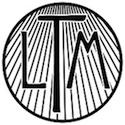Virna Lindt \ Biography
The Dossier On Virna Lindt by Marc Freiberg
The release of Virna Lindt's Attention Stockholm single in May 1981 marked the official beginning of the retro-lounge movement in the UK and Europe. Taking its cue from Bernard Hermann's soundtracks for Alfred Hitchcock, John Barry's Bond exploits and TV series like The Persuaders and The Prisoner, Attention Stockholm managed to weave together the twangy guitars of surf-punk, the lush strings of Hollywood and the musique-concrete of Pierre Boulez and John Cage within a heavily-compressed synthetic beat which captured the imagination of teenage record fans from Camden to Kawasaki.
The story of a secret agent who disappeared while on a mission to save the world, the record was not so much sung as 'spoken'. The speaker being twenty year old Virna Lindt, a Swedish translation student who was at the time working for two of the world's largest news agencies and, as it turned out later, in an indirect way, the secret services of at least two nations.
While on a train bound for London, Lindt met songwriter and record producer Tot Taylor and told him of her plan to make a record like "a Hitchcock theme with a rock n' roll beat." Thus, the urgent-sounding 45, recorded live in Stockholm in just three hours with a very large ad-hoc orchestra became the first record on Taylor's Compact Organisation label, along with two other debut releases by Mari Wilson ('Miss Beehive') and the early funk/hip-hop collective Shake/Shake.
Within the month, Attention Stockholm was on top of the indie chart, had become a Smash Hits Single of the Week and a Time Out Pick of the Week - great accolades of the time. The initial pressing of 3000 was sold out within the first month of release and an album, Shiver, was already in production. Lindt was interviewed in every music magazine, as well as features in the Times and the Guardian, and an appearance on UK TV on iconic Tyne Tees show The Tube, deciding not to promote her indie hit but the more dance-orientated (but still avant-garde) Wild Strawberries - the title taken from the Ingmar Bergman film.
Compact, run from a small bedsit in Queen's Wood, North London, became a more stylish and stylised alternative to the 'photocopied' ethos of the labels making up the post-punk Independent boom. Along with Tony Wilson's Factory and Michael Zilkha's Ze from New York, the Compact Organisation offered an alternative to the alternative. Where most bands of the period were happy to tour with a shambolic knockabout performance of hydrogen-fuelled punk, Compact gigs - presented as packages with Mari Wilson, Shake/Shake, The Beautiful Americans and Miss Cynthia Scott - came across as a cinematic mix of Sunday Night at the London Palladium, Studio 54 on a rainy night and a smalltown beauty pageant.
Tours of Scandinavia, Holland, Germany and Japan followed the release of the debut album Shiver in 1983, when Lindt became one of the first of the New Wavers to be proclaimed to be truly Big in Japan, the title track being used on at least five Japanese TV commercials. A second album, Play/Record, was released in 1985, with a definitive stylistic change toward a more rhapsodic 'orchestra with beats' approach.
In the first half of the 80s, the 'spy' concept was appropriated by many - Eurythmics, Who's That Girl, the Human League's Dare album. But Virna Lindt was there first. Even Elvis Costello acknowledged Attention Stockholm as one of his favourite singles.
Ten years later, the music business had reached a peak of recycling, re-releasing and re-issuing. The wells having run dry, major labels being in the process of destroying both the independent market and eventually themselves through a mixture of greed for shareholder profits and complete loss of direction. One of the things that temporarily postponed its demise was the re-issuing of Sixties and Seventies film soundtracks, cocktail and lounge compilations, 'in-flight' nostalgia, 'blaxploitation' remakes and 'spy' themed CDs including endless re-workings and remixes of TV themes and Bond anthems.
Club nights followed, with endless regurgitations which recycled elements from eras past until all merged within one intense 120 BPM nightmare. Virna Lindt regularly appears as a staple sample or reference whenever an espionage element is called for. Now, at last, is another chance to hear the original, remixed and remastered by the original producer for a new post-retro world.





![MOVING SOUNDTRACKS [LTMCD 2514]](../images/ltmcd2514.jpg)
![LES FILLES Du Crépuscule [LTMCD 2556]](../images/ltmcd2556.jpg)
![Ghosts of Christmas Past [TWI 158]](images/twi158cd.jpg)